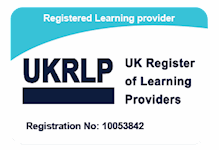
NCFE Level 3 Certificate in Principles of Management
Extra Discount Up to 40% | Awarded by NCFE & CACHE | Unlimited Access for 365 Days
South London College
Summary
Start Now for ONLY £35!
INSTALMENT PAYMENT OPTION AVAILABLE!
Enquire Now!
- Exam(s) / assessment(s) is included in price
- Tutor is available to students
- TOTUM card available but not included in price What's this?
Add to basket or enquire
Overview
**Time is running out! Get Up to 40% OFF before the offer ends!**
Enquire Now for more details
NCFE Level 3 Certificate in Principles of Management
The NCFE Level 3 Certificate in Principles of Management is designed to give you a comprehensive understanding of what it takes to be in a management position. The course is developed for aspiring managers and others who are currently in supervisory roles. You will learn to identify clearly defined objectives on a daily basis. Management roles can be found across a wide spectrum of industries, and getting certified in this Level 3 course will open the door to gaining employment opportunities in the desired field. You will learn how to manage a team, and work as part of a team. The course will teach you how to enhance your decision making skills. You will also learn to provide a supporting role to others within an organisation.
The course will discuss key topics such as how to improve business performance, and about equality, diversion and inclusivity in the workplace. The course will also help you develop your core skills to become an effective First Line Manager.
The NCFE Level 3 Certificate in Principles of Management will give you a solid understanding of how to improve communication and motivational skills, thereby, enhancing operational efficiency. A good manager will learn to manage people effectively, make them feel valued and manage the workflow. The course will equip you with a broader knowledge of skills in order to be effective in different management areas and to achieve organisational goals collectively together.
Click 'Enquire NOW' for more information!
Why study at South London College?
South London College offers the most convenient path to gain recognised skills and training that will give you the opportunity to put into practice your knowledge and expertise in an IT or corporate environment. You can study at your own pace at South London College and you will be provided with all the necessary material, tutorials, qualified course instructor, narrated e-learning modules and free resources which include Free CV writing pack, free career support and course demo to make your learning experience more enriching and rewarding.
Eligible for TOTUM card - TOTUM is the #1 student discount card and app giving you access to exclusive student deals on food and fashion, tech and travel and everything in between.
'ENROL NOW' Hurry up!
GET STARTED TODAY!
Qualification
Level 3 Certificate in Principles of Management
Course media
Description
COURSE CURRICULUM
★ MODULE 01 : Principles of People Management [J/507/4328]
- Principles of People Management – Part 1
- Principles of People Management – Part 2
★ MODULE 02 : Principles of Business [L/507/4329]
- Principles of Business – Part 1
- Principles of Business – Part 2
★ MODULE 03 : Principles of Leadership and Management [F/507/4330]
- Introduction
- Setting objectives when decision making
- The importance of analysing your decisions
- Gathering information
- Aligning decisions with policies and values
- Validating information
- Addressing issues that affect achievements
- Leaders and managers
- Leadership styles
- Theories of motivation
- Management roles and responsibilities
- How managers ensure objectives are met
- Contributing to the achievement of an organisation’s mission as a manager
- Theories and models of management
- How theories guide a manager’s actions
- Constraints imposed by budgets
- Waste management
- Business objectives and performance measurement
- Aligning objectives and performance requirements
- Performance measurement systems
- Key performance indicators
- Monitoring and reporting on business performance
- Management information systems and accounts
- Outcomes and outputs
★ MODULE 04 : Understand How to Improve Business Performance [J/507/4331]
- Introduction
- Problem-solving and change management techniques
- Problem-solving constraints
- The role of stakeholders in solving issues
- The decision making process
- Implications of trying to solve business problems
- The benefits of continuous improvement
- Continuous improvement techniques
- Cost-benefit analysis
- Effective leadership in times of change
- How stakeholders manage change
- Change management models
- The organisational development approach
- Risks when implementing change
- Crisis management
- Barriers to change and how to deal with them
- Evaluate change management projects
★ MODULE 05 : Understand Equality, Diversity and Inclusion in the Workplace [K/507/4337]
- Introduction
- Equality, diversity and inclusion
- Key terms
- Equal opportunities legislation
- Consequences of equality breaches
- Nominated responsibilities regarding equality, diversity and inclusion
- Forms of discrimination and harassment
- Characteristics that support equality and diversity
- The importance of displaying behaviour that supports equality, diversity and inclusion
★ MODULE 06 : Understand How to Resolve Customer’s Problems or Complaints [D/507/5565]
- Introduction
- Assessing techniques for monitoring problems
- How resolution boosts customer loyalty
- Negotiation techniques when issues are encountered
- Identifying complaints that should prompt a review
- Managing difficult situations
- Behaving assertively to deal with upset customers
- Using procedures and systems to deal with issues
- Complaints procedures
- When to pass problems to a colleague
- Implications of admitting liability
★ MODULE 07 : Understand How to Monitor Customer Service Interactions and Feedback [M/507/5568]
- Introduction
- Monitoring customer service interactions
- Policies and procedures
- Limitations of monitoring customer interactions
- Representative sample of customer service interactions
- Identifying ways to improve
- Types of feedback
- Dealing with feedback
- Collecting data for customer research
- Evaluating bias in non-random samples
- Designing quality questionnaires
- Analysing customer feedback.
- Monitoring data quality
- Using software to analyse feedback
- Validation issues
Course Description
- Qualification type: Level 3 Certificate
- Qualification title: NCFE Level 3 Certificate in Principles of Management
- Accreditation status: Accredited
- Level: 3
- Guided Learning Hours (GLH): 215
- Total Qualification Time (TQT): 240
- Qualification number (QN): 6017075X
Access Duration
The course will be directly delivered to you, and you have 12 months access to the online learning platform from the date you joined the course. The course is self-paced and you can complete it in stages, revisiting the lectures at any time.
Method of Assessment
To be awarded the NCFE Level 3 Certificate in Principles of Management, learners are required to successfully complete 3 mandatory units and 4 optional units.
Internally assessed and externally moderated portfolio of evidence. Each learner is required to create a portfolio of evidence, which demonstrates the achievement of all the learning outcomes and assessment criteria.
Certification:
Those who successfully complete the course will be awarded the NCFE Level 3 Certificate in Principles of Management. The qualification will make you valuable to employers, and your motivation at gaining new skills will be recognised.
Awarding Body:
CACHE are continually investing in high quality qualifications for the care and education industry, making them the UK’s leading sector specialist. Developed by experts, CACHE qualifications help millions of learners to raise professional standards across the sector. As a result, CACHE has gained a deserved reputation for excellence and leadership.
NCFE is a National Awarding Organisation, passionate about designing, developing and certificating diverse, nationally recognised qualifications and awards. These qualifications contribute to the success of millions of learners at all levels, bringing them closer to fulfilling their personal goals. Last year alone, over 340,000 learners from over 2,000 colleges, schools and training organisations chose NCFE as the Awarding Organisation to help them move their careers forward.
Requirements
Learners will need to be over the age of 19, and must demonstrate the following:
- Vocational or academic qualification at Level 2 or higher
- Basic level of literacy, numeracy and ICT ability
In order to qualify for the programme, you will need to submit a completed application form which will be provided to you. This form should be provided to us within a month of enrolment, along with the following;
- Proof of educational qualifications
- You must provide an identification document such as a passport or a driving license.
Career path
Once you successfully completed the NCFE Level 3 Certificate in Principles of Management, you will gain an accredited qualification that will give your career the jumpstart you have always wanted.
- Project Manager - £38,954 per annum
- Project Officer - £28,732 per annum
- Shift Manager - £31,471 per annum
- Team Leader - £25,239 per annum
Questions and answers
Reviews
Currently there are no reviews for this course. Be the first to leave a review.
Legal information
This course is advertised on reed.co.uk by the Course Provider, whose terms and conditions apply. Purchases are made directly from the Course Provider, and as such, content and materials are supplied by the Course Provider directly. Reed is acting as agent and not reseller in relation to this course. Reed's only responsibility is to facilitate your payment for the course. It is your responsibility to review and agree to the Course Provider's terms and conditions and satisfy yourself as to the suitability of the course you intend to purchase. Reed will not have any responsibility for the content of the course and/or associated materials.









